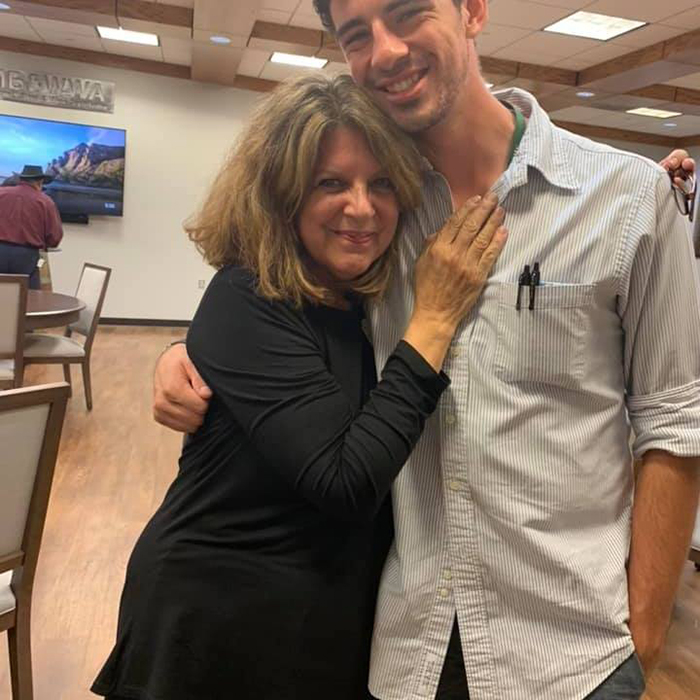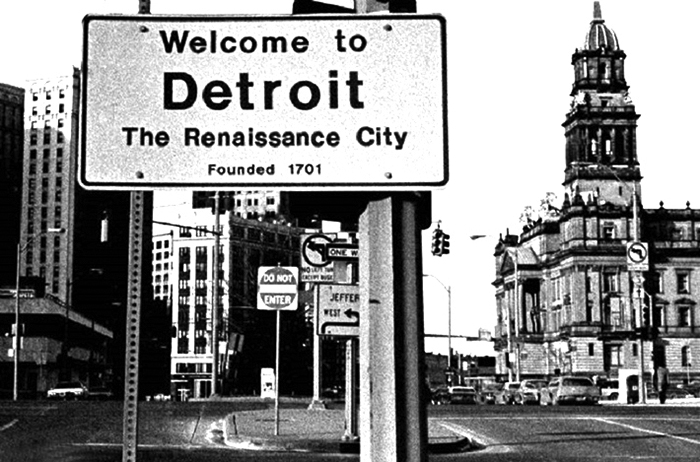As an elder in Detroit, I regret that younger people will not know the feeling of waiting in lines for the things The State imposed on us.
As a young pregnant woman from Detroit at a time when auto factory shut downs required workers to go to the Unemployment Offices, a whole world opened up to me. I waited in the snaking line outside of the office on Michigan and Clark, around the corner from the Cadillac plant in Detroit and across the street from UAW Local 22.
Outside, people played the shell game. People stood around them and watched for hours as the experts moved the shells around between three cans. I saw people lose their whole two weeks checks. Vendors sold African clothing, food, books, records, tapes. Anything could be found outside the unemployment office, legal and illegal.
When I was nursing my first-born child, the sound of any baby crying would bring in the milk. I turned to a man holding an infant and asked if I could feed him. The man quickly agreed to release his screaming baby to me. I exited the bathroom with a sleeping child and a roar of applause from the crowd.
That was in 1979 and layoffs were all over the country. Detroit was hit hard and lots of people went to the unemployment office every two weeks. We organized potlucks and had conversations about life, about Beloved Detroit and how we would survive the brutal winter. People of all ages and races waited together as we discussed the state of the world. Chicanos often translated for people who didn’t speak English. It was a time.
Secretary of State was another important venue. The lines are always long and filled with people who cannot get tag renewals online. There’s a huge class distinction between those who renew by mail or online and those who go to LA Insurance on the day of their tags’ expiration and get the one-week certificate for a huge amount of money and then their tags. Some racist from Michigan presented legislation outlawing immigrants’ right to drive without a social security number; for years I had tags in my name for workers who simply needed to get to work. I entered Secretary of State with a stack of titles and got tags for a fleet of hoopties. On my birthday every year, the fleet would arrive in front of my house and we would put tags on cars. The State criminalized us all.
The insurance industry in Detroit is an apartheid project. We pay up to ten times more for car insurance than our suburban (Read: White) counterparts. Cars get stolen, smashed, damaged and we get nothing but the right to drive. Countless immigrants have lost their cars to predator impounds.
In the Secretary of State office on Bagley, which I have affectionately referred to as the Mexican festival, important conversations are had involving all manner of people waiting for their number to be called. Once a Latina woman said in Spanish that she was going to wait in line for the Latina (Spanish speaking worker) to wait on her as the Black worker behind the desk waited with no one in her line. I asked her if she speaks English, why not go to the English speaker? She said she didn’t want to deal with a Black worker and I said, “You must be pretty unhappy in Detroit.” This started a very lively conversation from Mexicans who did not speak English and were newly arrived and had no guideposts for conversations on race.
It was one of the most transformative moments I have ever had in my life in these trenches. A Black and Brown conversation ensued in absolute joy. All kinds of questions about why people came here, when, what life was like. People shared their experiences and I got to translate a lot of that conversation between my Spanglish and other bilingual volunteers who came out of the woodwork to join this rare discussion.
Revolution and redemption can be fomented in the long lines of The State. I miss talking to strangers at the predatory Water Department, at monopoly DTE, at the brutal Secretary of State. It’s a sweet life in Detroitistan if you know where to look.
Elena Herrada is a long-time fighter and leader who stands for the people of Detroit in their struggle for survival against the corporate power structure.


